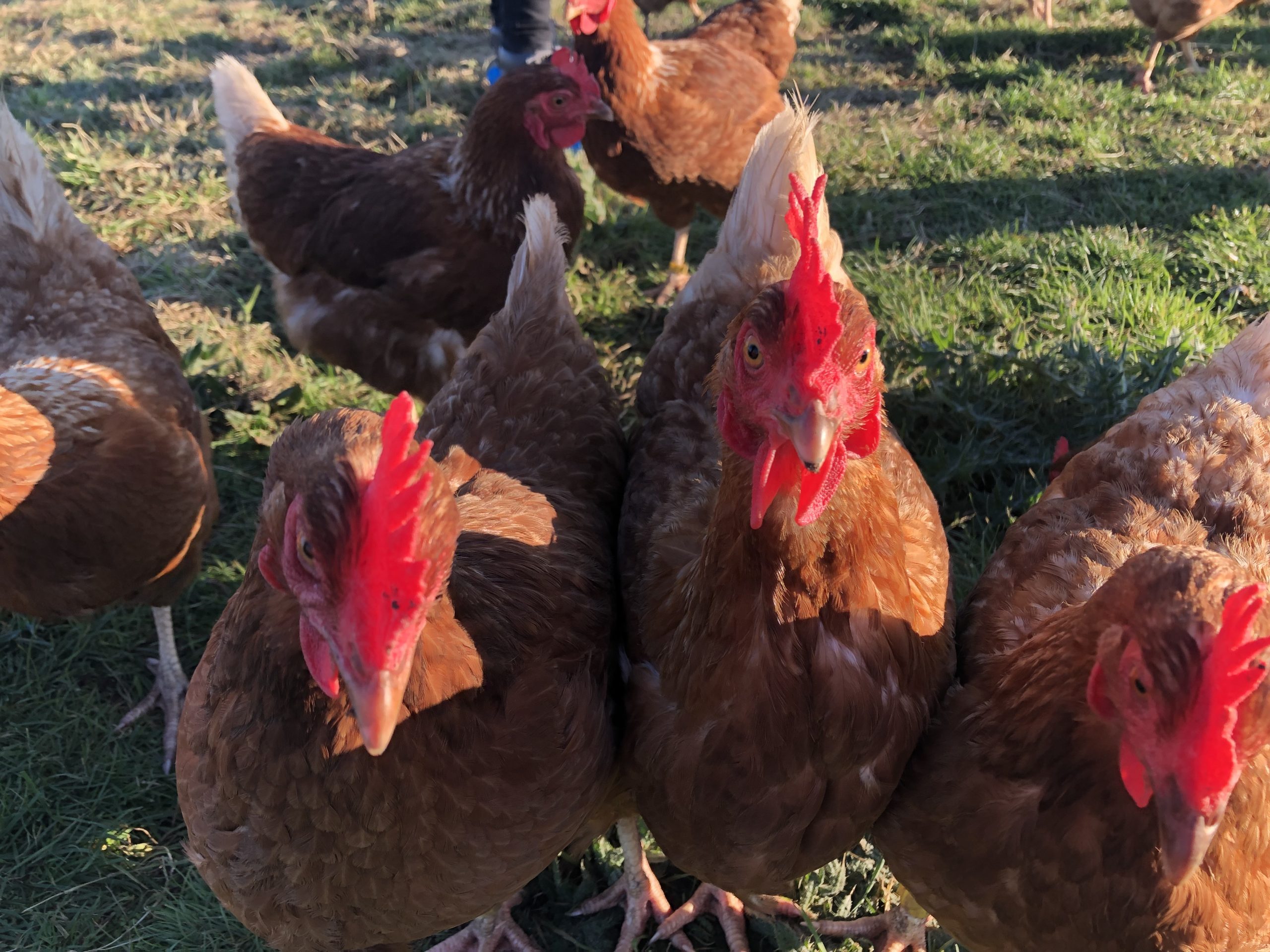
July 8, 2020, by Lexi Earl
Transforming chicken feed for the future: an interview with Hannah Dallas
Hannah Dallas is a PhD candidate with the Future Proteins Platform. Her project is titled The application of methanotroph bacteria Methylococcus capsulatus as chicken feed. Hannah is supervised by: Dr Ying Zhang, Prof Michael Lee, and Tithira Wimalasenaf. Prior to joining UoN, Hannah completed a Masters in Medicinal and Pharmaceutical Chemistry at the University of Loughborough.
Why did you decide to do a PhD? What were you doing before?
Before starting my PhD here at Nottingham, I was working on my Masters in Medicinal and Pharmaceutical Chemistry at Loughborough. I had been drawn to the more biological aspects of my undergrad work and looked for that in PhDs when I realised how much I enjoyed the research and work required for my Masters.
Why did you choose this particular PhD project?
For my Masters project I had designed an experiment based around the isolation of novel bacteria from soil samples. I analysed their excreted metabolites in the hopes of identifying a novel antibiotic producer. When I started applying for PhDs, I was looking for ones that would allow me a similar kind of subject to research and one where I had connected with the supervisor.
How is your first year going? Any highlights or successes?
It took a while to adjust to the lab procedures and there was a steep learning curve for me coming from another field. However, the community in my lab and building as a whole has been wonderful and made the adjustment a lot smoother. I saw a lot of progress in the start of 2020, adjusting my standard operating procedures to achieve a consistent methanotrophic growth with fermenters, and have been trying to develop other skills until I can go back to lab work.
Has undertaking a PhD been different from other degrees you have done? How so?
The most significant difference between this PhD and my Masters is the time commitment for setting up the longer running experiments, with working in the lab late in the evenings and coming in on the weekends too. There is a still a lot of freedom, as with my Masters, but it is clear that supervisors and the like are a lot more invested and happier to give up their time to discuss things.
What have you learnt through your first PhD year?
The most significant lab-based thing I have learnt in the first part of the year is the set-up, run and shutdown of fermenters. In the later months I have been brushing up on my Python skills, using it for analysis of the data I had collected from the fermenter.
Tell us about your research. What do you study? Why is it important?
I work with a methanotrophic bacterium, Methylococcus capsulatus (Bath). I’m investigating the applications of this wildtype as a single-cell protein and a supplement in chicken feed. Using fermenters, I am developing methods for optimum growth and analysing the biomass for its lipid, amino acid and sugar content, etc. Once I have an accurate picture of the wild-type growth I will begin modifying the bacteria to improve its nutritional content based on the requirements of broiler chickens. In the later stages of my PhD, the biomass collected from my fermentations will be used in an animal study.
How do you explain your research to ordinary people?
When I’ve described my work to my family, I tell them that I work with methane consuming bacteria, and I’m seeing if I manipulate the way they grow so that when I dry them, I can feed them to chickens. The idea is that we will eventually be able to supplement their feed with the cells to make feeding them cheaper and more efficient.
How do you cope with the pressure of doing a PhD?
To cope with the pressure, I like to work on my bullet journal as an artistic way to keep organised and to relax. I’ve filled my home with plants to make sure I have a relaxing space, and I enjoy the routine of caring for them as a way to reset. When someone has a bad week, myself and the girls from my office like to go and get a ridiculously large coffee and slice of cake and either talk through work problems or just chill for a while.
No comments yet, fill out a comment to be the first

Leave a Reply